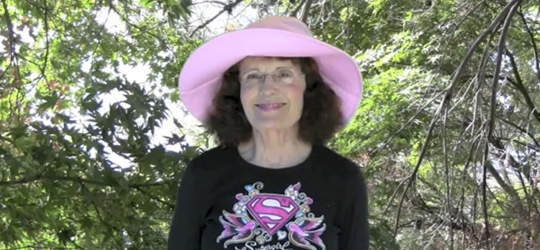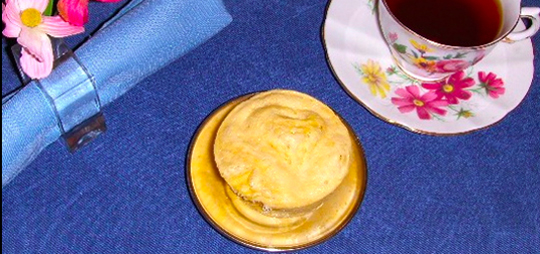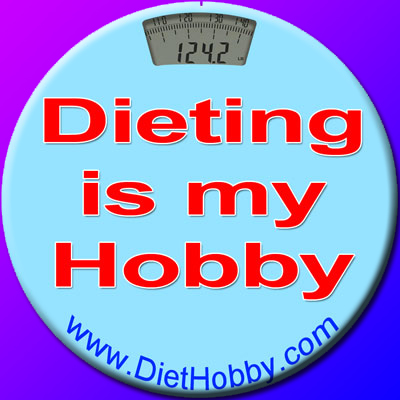
Diet Wisdom
Dr. Collins shares Dieting and Weight-Loss Information

Words of Wisdom
Dr. Collins makes Brief Positive Statements for Inspiration and Motivation.

Recipes
Healthy Home Cooking by Dr. Collins for a Low-Calorie Lifestyle.

Grandma's House
A place for Grandbabies to visit with their online Grandma.
A Common Problem
- POSTED ON: Jul 21, 2011

Originally posted by member in a weight-loss forum
"After looking over my data for the past 9 months,
I conclude that I need to be eating about 1200 calories a day
and exercising the equivalent of 200 calories a day.
Otherwise, I am going to stay right where I am.
Now, can accomplish this behavior???
I am not sure.
I know I don't like being stuck where I am.
So, it is my choice.
I realize that due to injuries my daily movement
has been curtailed and conserved.
My "need" for food stays the same, however."
This is an excellent statement about the problem that many of us have in common,
especially older "reduced obese" women. After carefully recording our food-intake
and weight data in computer software journals, our data reveals a rather unpleasant truth.
The calorie needs of our older bodies is far, far less than our appetites;
many of our aging bodies simply will not tolerate heavy exercise;
and our true calorie need is a number far, far lower
than what the "expert" charts indicate is correct for us.
We have to ask ourselves:
"Are we willing to trade the food to be a "normal" size?"
and
"Can we get ourselves to eat in that manner?"
There's a lot currently written about what our bodies required in Paleolithic times,
and I've been thinking about elderly women in that time.
First...there weren't very many post-menopausal women around...
and I imagine that those who did survive to become old,
had to "earn their keep".
Since the women were past childbearing years;
the ability to do a lot of physically hard work reduces with age;
and age doesn't necessarily come with increased wisdom,
it would be reasonable to assume that they had less value for their "tribe"
so probably it would have been an important asset
to have a body that required less food to survive.
What does this mean currently?
I don't know, but I find it interesting to consider.
...
Maintenance As Compared to Weight-Loss
- POSTED ON: Jul 20, 2011

I frequently visit and participate in various online weight-loss forums.
This morning I posted the following message in one such forum and am choosing to post it here as well.
Posted by a member of a weight-loss forum:
"My questions for you are as follows:
During your weight loss phase did you commit to it
and never look back or were you slipping up here and there?As a maintainer, do you find that the internal struggle over food
is the same as it was when you were heavy
(I am referring to the guilt of overeating and at times, feeling out of control)?I have never even been within 30 lbs of goal so I really don't know what it is like.
I slip up a little now and I was not sure if this eventually gets better, worse,
or stays the same."
I've never been perfect, not in my weight-loss phase nor here in my maintenance phase, and slip-ups-here-and-there have always been part of my process.
 As a maintainer, the internal struggle over food is about the same. One part of me wants to eateverything I want, whenever I want to, and the other part of me wants to maintain my weight-loss. These are strong desires that continue to oppose each other.
As a maintainer, the internal struggle over food is about the same. One part of me wants to eateverything I want, whenever I want to, and the other part of me wants to maintain my weight-loss. These are strong desires that continue to oppose each other.
![]() However, when I overeat, I am always conscious of the fact that it is a CHOICE,
However, when I overeat, I am always conscious of the fact that it is a CHOICE,
and now, when I have out-of-control feelings, it is NOT that I actually have no control or choice about overeating behavior
......despite the intensity of the desires or the difficulty of the struggle, I know that what I put in my mouth is my own choice..... Whether I overeat, eat compulsively, or binge.. I'm choosing my behavior.
I still have out-of-control feelings frequently, but these are primarily due to the failure of my body to give me positive weight results even after I've chosen to engage in positive eating behavior.
![]() Bottom Line.... for me... The process and the feelings are forever.
Bottom Line.... for me... The process and the feelings are forever.
Time doesn't improve them. The only effective response is ACCEPTANCE, of the feelings and of the struggle. ....understanding that it is a part of my life, and there is no escape possible.
Being fat is hard;
Losing weight is hard;
Maintaining weight is hard;
Choos...
Our Thoughts Make Our World
- POSTED ON: Jul 19, 2011
So... ![]()
I continually work on my Thought Processes,
and many of the articles here at DietHobby
demonstrate my involvment in that activity.
Monday Morning
- POSTED ON: Jul 18, 2011

It's Monday morning, mid-July, and I'm finding it hard to Find inspiration for myself, let alone Provide any inspiration for others.
The day-to-day sharing that maintaining this website requires is sometimes Challenging for me. My personal focus is continued, consistent weight-maintenance efforts, together with working to achieve a positive outlook on all aspects of my life. This takes ongoing physical and mental effort, and, although it might appear to be an easy task, it is not.
![]() I experience the same moods as you, and sometimes the "Monday blues" are difficult. Despite continued effort at positive thinking, positive consistent behavior, and patient waiting, my body is not dropping the 5 lbs or so that have crept on during the past few years and sometimes I feel angry and discouraged about that situation.
I experience the same moods as you, and sometimes the "Monday blues" are difficult. Despite continued effort at positive thinking, positive consistent behavior, and patient waiting, my body is not dropping the 5 lbs or so that have crept on during the past few years and sometimes I feel angry and discouraged about that situation.
I remind myself how far I've come, and how maintaining a 150 lb loss is great, despite that 5 lb creep, and although I'm grateful...I'm still P***ed Off. But, I'm not going to drive my car over a cliff just because it has a scratch on it, and I'm not going to give myself permission to overeat, simply because...no matter what or how much I eat and/or exercise... the "minus 3500 calories = 1 fat pound lost rule" no longer seems to be applicable to my body.
So this morning...like every morning...I recorded my weight in my diet software.![]() I'm writing this article, and then I'm going to have one of my normal low-cal breakfasts, which I will record in that diet software. I will then go about the remainder of my daily tasks, and will continue to work to keep my food-intake calories down,and record every bite I take. This is a habit I've established, and a great deal of the time I find it enjoyable.
I'm writing this article, and then I'm going to have one of my normal low-cal breakfasts, which I will record in that diet software. I will then go about the remainder of my daily tasks, and will continue to work to keep my food-intake calories down,and record every bite I take. This is a habit I've established, and a great deal of the time I find it enjoyable.
 For a variety of reasons, I feel a bit down this morning, so....what to do?..... First, I allow myself to feel it, avoiding frantic attempts at escape. Next, I go about my daily tasks, and just do the next indicated thing.
For a variety of reasons, I feel a bit down this morning, so....what to do?..... First, I allow myself to feel it, avoiding frantic attempts at escape. Next, I go about my daily tasks, and just do the next indicated thing.
Feelings are like the tide. They go in and out, come and go, Both the "good" and the "bad". All feelings are part of us, and none of us escapes them. We just have to ride them out while we struggle to stay afloat.
The chances are good that in a short time I'll feel better, and before the day is over, there will be at least a few times when I'll feel really good.
![]() Life has given me another day with an assortment of possibilities, and I get to choose personal behaviors that will tend to lead me toward positive results.
Life has given me another day with an assortment of possibilities, and I get to choose personal behaviors that will tend to lead me toward positive results.
Three Myths
- POSTED ON: Jul 17, 2011
![]()
I agree with most of this recent news article.
Do you?
"Calories in, calories out—in theory, losing weight should be that simple. But we're going to venture a guess that the reason two-thirds of Americans are classified as overweight or obese isn't because they can't do basic math. Age, genetics, hormones and the big one—a lack of will power—better explain the disconnect between wanting to lose weight and actually doing it.
In fact, while 84 percent of people claim they're trying to take better care of their health today than just a few years ago, 59 percent of people reported they don't have the will power to change their habits, according to a recent survey by The Futures Co. Lack of will power is the No. 1 barrier preventing Americans from living healthier lifestyles, ranking higher than money, time, desire and a perceived lack of need, according to the survey.
So what's the secret to propelling yourself from an "aha" moment to reaching a healthy weight? It's all about the day-to-day. Focusing on lifestyle changes, heeding the right how-to advice and finding support from a group of like-minded peers will help you stay on track better than focusing on the impetus (a scary obesity poster in the subway) or the end result (fitting into your skinny jeans again).Here, we sift through motivation research and enlist the help of Andy Core, an exercise physiologist and motivational speaker, to muddle through three motivation misconceptions—and provide the help you need to stay on track.
Myth 1: The end result is what matters.
Reality: Enjoying the path to success is what helps you reach it.
You know the Chinese proverb "The journey is the reward," but you've probably never thought of it in terms of losing weight. The reward typically associated with a diet and exercise plan is watching your goal weight calibrate on the bathroom scale. But according to Core, thinking ahead to that magical day isn't enough to motivate you to get there. "Starting with the end in mind is the fast track to failure in a health-improvement program," he says. "You want to have goals, but your daily focus should be on gaining gratification from checking the box."
"Checking the box" could mean finishing a workout, drinking eight glasses of water in a given day, or dedicating 10 minutes in the evening to laying out your gym clothes and making a healthy lunch for the next day, says Core. The important thing is that it becomes a positive experience that you want to repeat, he says, adding that setting up healthy lifestyle patterns helps you build the momentum necessary to reach a weight loss goal.
Myth 2: I am my own biggest motivator.
Reality: Social support is essential to reaching a weight loss goal.
You could have all the gumption in the world, but it won't get you far if you're going at weight loss alone—or from inside a circle of friends who make unhealthy decisions, says Core.
Research suggests that having obese friends can make you gain weight too—and that your peers can help you lose ...
<< Newest Blogs | Page 269 | Page 279 | Page 289 << Previous Page | Page 297 | Page 298 | Page 299 | Page 300 | Page 301 | Page 309 | Page 319 | Page 329 | Next Page >> Oldest >>











